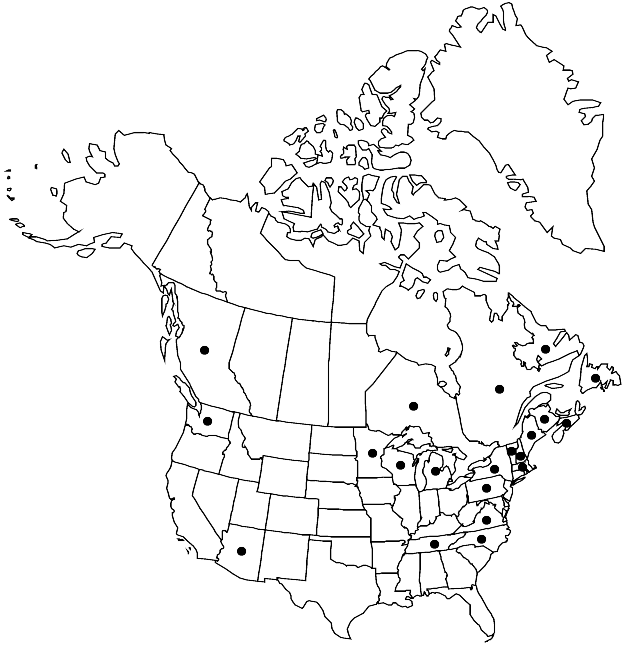Homalia trichomanoides var. trichomanoides
Treatment appears in FNA Volume 28. Treatment on page 609.
Revision as of 17:09, 18 September 2019 by FNA>Volume Importer
Plants 3–7 cm. Perichaetial inner leaves with base sheathing, margins entire, apex gradually to abruptly subulate, ecostate, basal laminal cells rectangular, distal medial and apical cells linear.
Phenology: Capsules mature May–Nov.
Habitat: Base of trees, roots, rotten logs, shaded boulders, shady banks, limestone cliffs, soil
Elevation: low to moderate elevations (150-1000 m)
Distribution

B.C., N.B., Nfld. and Labr., N.S., Ont., Que., Ariz., Maine, Mass., Mich., Minn., N.H., N.Y., N.C., Pa., Tenn., Vt., Va., Wash., Wis., Mexico (Jalisco), Europe, Asia (China, India, Japan, Korea).
Discussion
Variety trichomanoides has a wide distribution and can be distinguished from var. japonica (Bescherelle) S. He by sexual condition, which is dioicous in the latter. Also, plants of var. trichomanoides are larger than those of var. japonica and tend to produce less attenuated branch apices or flagelliform branches.
Selected References
None.
Lower Taxa
None.